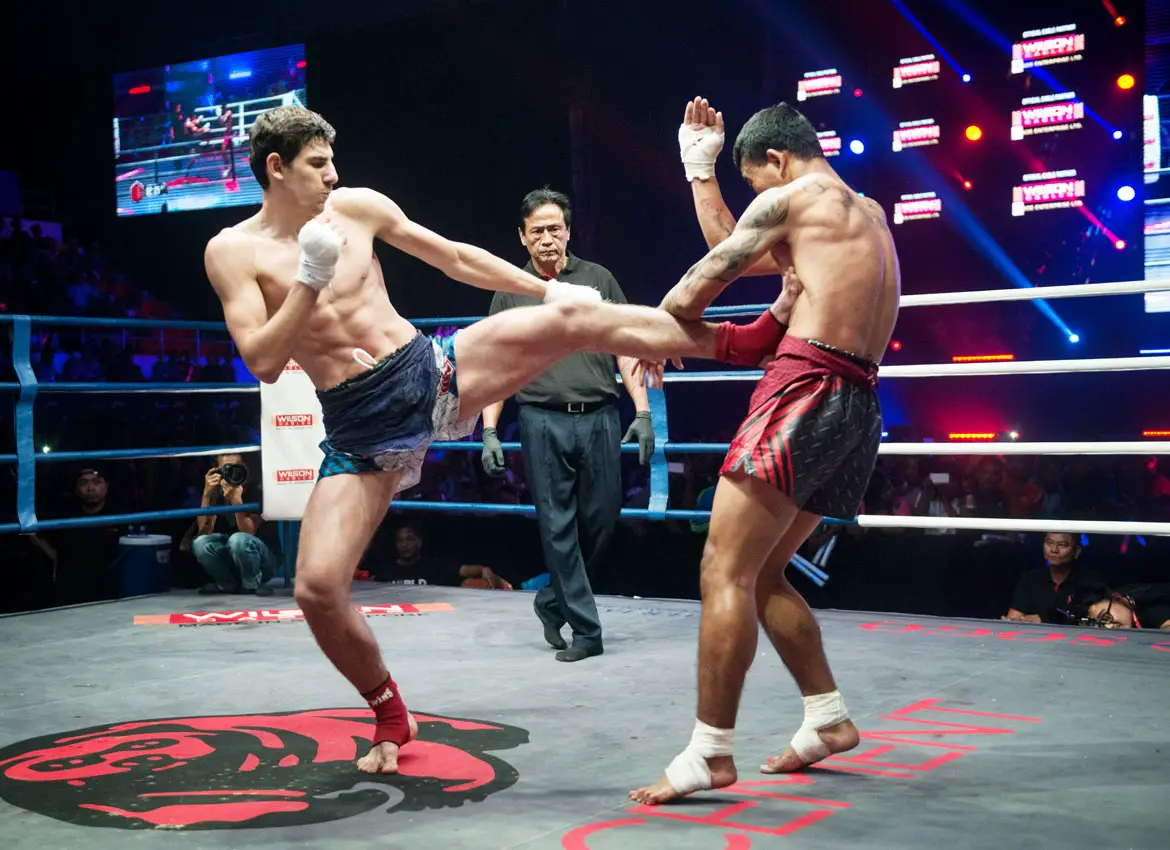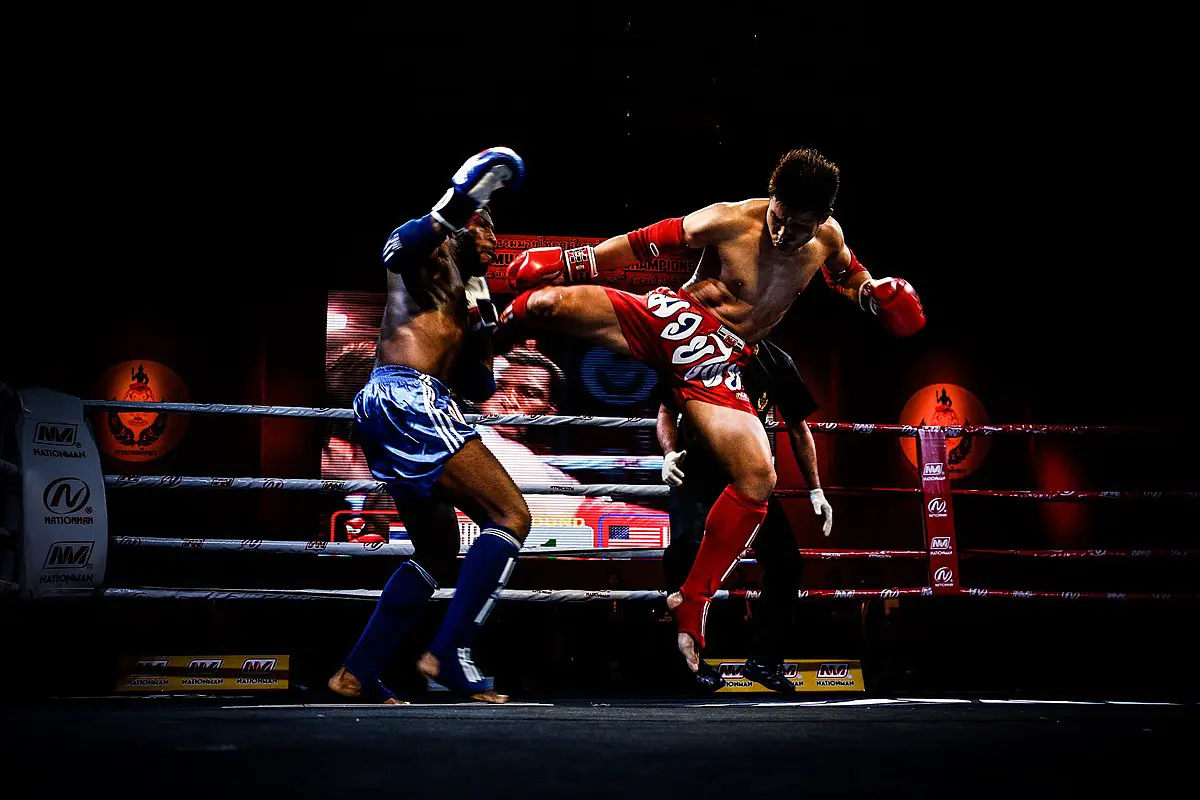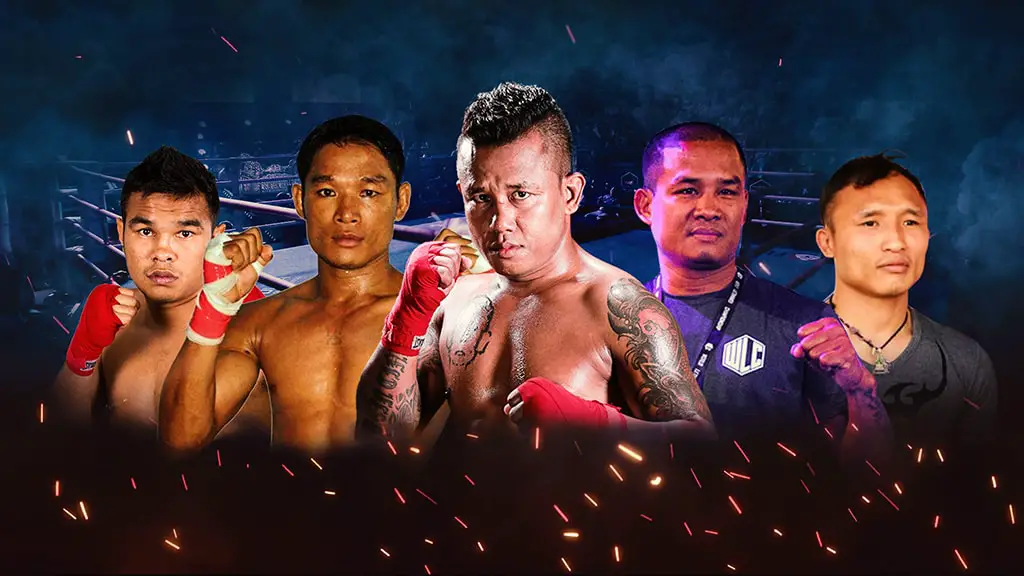The Ultimate Comparison
Martial Arts techniques vary from region to region. Originating from Chinese History, martial arts are categorized on basis of defensive, offensive, submissive, and dominance strategies.
Here, two specific ones are under view. One being the offensive technique whilst the other being the defensive technique.
Two of the well-known, profound types of martial arts, Lethwei & Muay Thai. Often merged into one general category; boxing. Having distinctly different techniques and origins, often mistaken for the same technique. Even though they share some common points and techniques, one is entirely different from the other.
Lethwei

The more profound and commonly used term is Burmese Boxing. The common name owing to the place of origin, where it is both accustomed to the culture as well as a traditional part of the olden culture. But, by the old traditional martial art naming scheme, it is called The Art of 9 Limbs.
Origin
Being part of the early Myanmar times, during the Pyu Empire Rule, it was a sport that was quite appealing when it came to entertaining the spectators. One of the most brutal of martial arts. Where bare-handedly, the striker and opponent fight with their fists, knees, elbows, and even their head at some point.
The brutality of the sport was that it wouldn’t end until one of the two participants would forfeit/kneel, get knocked out, or isn’t able to continue any longer. Out of breath, fists colliding bare, with the jawline or side. It is also said to be the only martial arts technique that inflicts the most damage.
Techniques
Initiation
For the initiation of the fight, the opponent taunts the striker/other participants with a traditional gesture. The “Lekkha Moun”. A sign of respect and a show of courage, one call on the other to fight in the ring.
Fighting Stances
Punches of all sorts are allowed. Followed by sweeps, thrusts, fist-a-cuffs, elbow blows, knee strikes, even headbutts, throws, and takedowns.
Normal fighting stances are some of the common ones you see in martial art movies, the most common one being used is the prowling tiger or the crane stand.
Use of arms, knees, head, fists, and elbows is allowed.
Attire
The casual attire consists of:
- Electrical tape on knuckles and feet. Sometimes even casting the legs for protection against critical blows.
- Knee-above shorts.
- No shirt nor shoes.
- A pair of groin safeguard
- A pair of gum safeguard
Fight Proceedings
Time Interval
The fight goes on for a specific time interval. Based on the number of rounds played.
No. of Rounds
The match goes on for approximately 3, 4, or 5 rounds at max.
Duration of each round
Each round comprises of 3-minutes each, with a 2-minute interval break in between each round.
- Championship Rounds consist of 5 rounds with each round of 3-minutes and a 2-minute break between each round.
The fame of Traditional Lethwei
Traditional & old-fashioned Lethwei is infamous for not having a scoring scheme, and only one condition to win. A knock-out or K.O. for that matter.
Conclusion
Lethwei is sufficient when one is in for a brawl. Or if one is in the need of better defensive tactics. One which usually leaves the other gasping for air in most cases.
Conclusively, it is better if one is looking to take part/become part of a street fight as it has the entire combo of parries and blocks. As well as all the offensive techniques that one requires to put up a good fight. Other than that, it is more complex to learn and needs the trainee to be in and under a specific condition.
Muay–Thai

Locally known globally as Thai Boxing, Thailand is the place of origin. In the olden days of ancient days of Thailand, a more profound and captivating name was used for this martial art technique. The Art of 8 Limbs.
Origin
Originally from the rural regions of Thailand, it had achieved fame over the decades in both rural as well as urban populations. During the Burmese and Konbaung Dynasty war, it was quite the sport. It is mainly a part of the culture as well as festivities in local town squares or temples. Making it quite the entertainment medium. It was also a sport that was specially put on display for the Thai-Royalties of that time. Making it a royal sport as well.
Techniques
Initiation
It has no special conditions for initiation as it does not require just the opponents facing off. But a referee in the middle. Guiding the fight all through a proper chain course.
Fighting Stances/Techniques
Techniques in Muay Thai are divided into two chain techniques:
Mae Mai (Major Techniques)

Techniques that are complex in both execution and stances are usually categorized here. Such as the elbow thrust right below the arm, or the roundhouse kick right across the chest. Techniques that inflict the most damage or are at a certain pressure point are Mae Mai.
Luk Mai (Minor Techniques)
Legs, arms, and elbows are best for playing offensive as well as a bit defensive. But when implemented in a vertical or horizontal plane of attack. They inflict minimum damage as well as some minor perks like stun or cause the opponent to lose footing.
Attire
The standard attire for Muay Thai is:
- No shirt.
- Boxing Gloves.
- Shoes can be made as an exception.
- Mouthguards.
- Groin guards.
Fight Proceedings
Fight proceedings are somewhat similar to Lethwei. But the end result is that it has to end with a fatality or a K.O. Forfeit isn’t allowed in the old traditional way of Muay Thai. But certain rules are asserted as the modernization of Muay Thai took effect. Now forfeiting is also in the rulebook.
That is why it is asserted to be more masculine and shows what one’s made of. Making its fame grow evermore in the youth or the people that want to prove their strength in the ring.
Conclusion
Muay Thai is most suited for close-quarter combat in defense. Not in the offense.
Conclusively, it is better for self-defense and one must at least know the basics of Muay Thai. Regardless of what physique, they’re in. Making it easier to learn.
For More Visit our website, Thank you

